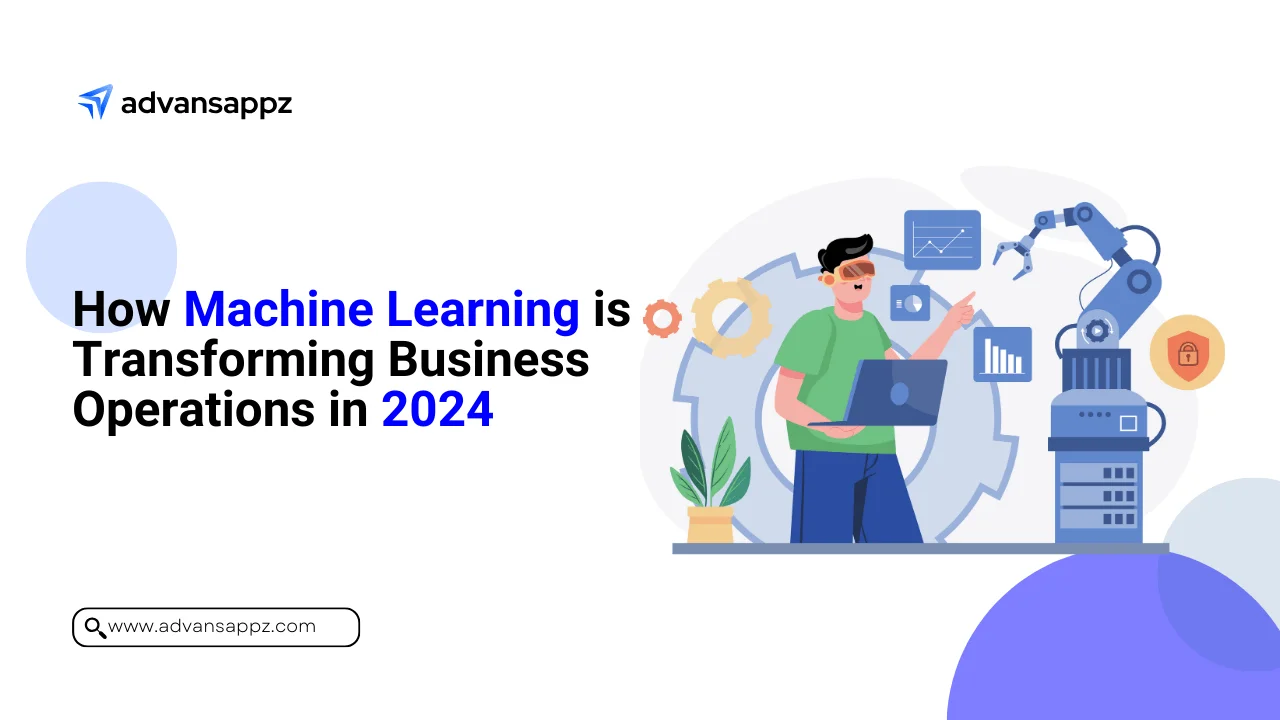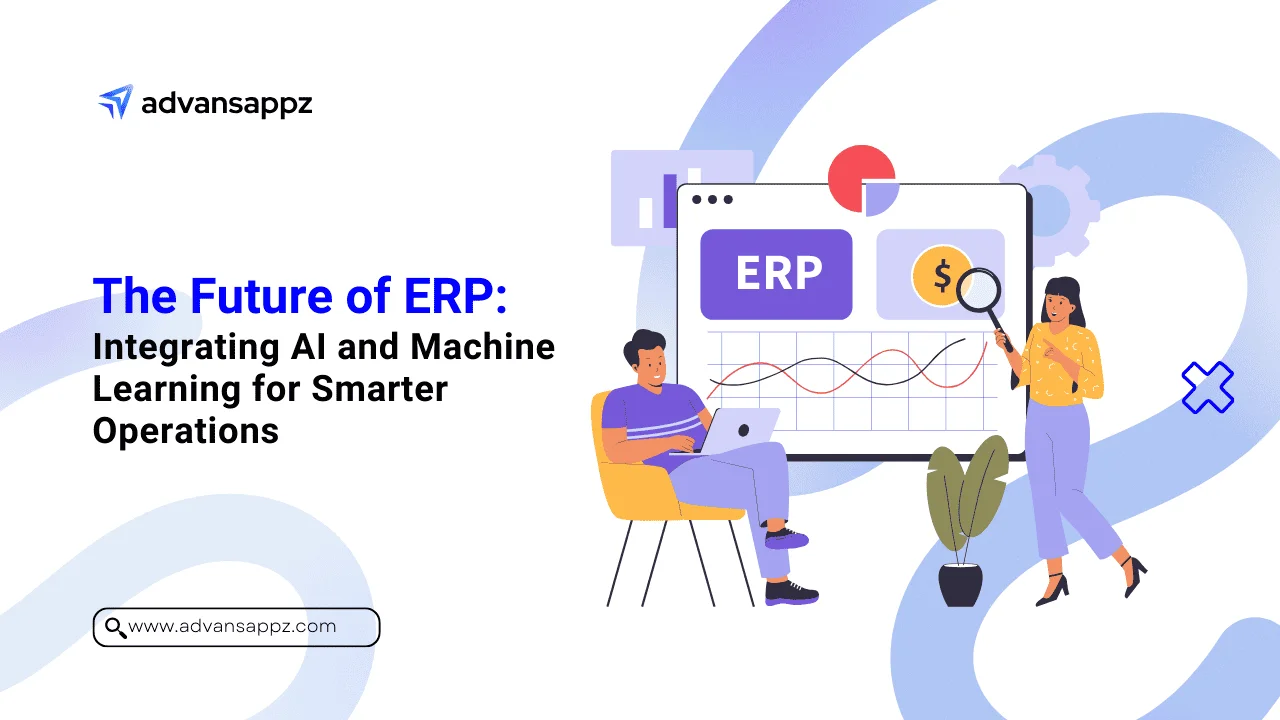Machine learning
Accelerate Business Growth with Innovative Machine Learning Solutions
advansappz offers a range of machine-learning methods to help organizations achieve their goals. Our experts use the latest techniques in machine learning and data mining to deliver tailored solutions.
advansappz provides top-notch machine learning services to help organizations harness the power of artificial intelligence. Our team of experts has extensive experience in implementing various machine-learning methods to deliver tailored solutions for our clients. Learn more about Machine Learning (ML)

Expertise in Machine learning
Trusted by Funded Startups, Enterprises
250+ Clients Globally
Solution-oriented approach
Join 1000s of global brands NOW!
Make Data Work for You with Our Innovative Machine Learning solutions
advansappz offers a range of machine learning methods to help organizations leverage AI to achieve their goals.
Business Analysis
Our team starts by analyzing your business requirements to understand how machine learning can be leveraged to improve your outcomes. We assess your data sources, identify patterns and trends, and develop a strategy to deliver the best results.
Design of Solutions
Based on the business analysis, our experts design a solution that leverages machine learning methods to meet your specific requirements. We provide a detailed plan that outlines the steps we will take to implement the solution.
Data Pre-Processing
Before training the machine learning models, it is important to pre-process the data to ensure it is ready for use. Our team handles data pre-processing, including data cleaning, data normalization, and feature extraction, to prepare the data for analysis.
Training
Our team trains the machine learning models using the pre-processed data. We use various machine learning types, including supervised, unsupervised, reinforcement, and deep learning, to deliver the best results.
Integration and Implementation
Once the machine learning models are trained, our team integrates them into your existing systems and implements them in a production environment. We provide end-to-end support to ensure a seamless transition to the new solution.
Support
advansappz provides ongoing support to ensure that the machine learning models continue to deliver the desired results. Our team provides regular maintenance, updates, and troubleshooting to keep the odels running smoothly.
Nurture Business growth with advansappz's Machine Learning Services
Recommendation
Our experts provide recommendations on the best machine learning methods to use for your specific requirements. We assess your data sources, analyze your business processes, and provide recommendations on the most effective machine learning methods to deliver the best results.
Modeling
Once the machine learning method has been chosen, our team creates models using the latest machine learning types, including supervised, unsupervised, reinforcement, and deep learning. Our models are designed to deliver accurate and actionable insights that can be used to drive business growth.
Implementation
Our team implements the machine learning models into your existing systems, ensuring seamless integration. We provide end-to-end support, from data pre-processing to model training, to ensure that the solution is implemented correctly.
Assistance
advansappz provides ongoing assistance to ensure that the machine learning models continue to deliver the desired results. Our team provides regular maintenance, updates, and troubleshooting to keep the models running smoothly.
Frequently Asked Questions
Do you have additional questions?
Machine Learning (ML) is a subset of artificial intelligence (AI) that focuses on developing algorithms and models that enable computers to learn and make predictions or decisions without being explicitly programmed. ML algorithms analyze data, identify patterns, and learn from examples, allowing computers to improve their performance over time.
Here are key aspects and concepts of Machine Learning:
Data: ML algorithms rely on data as their input. This data can be structured, such as in databases or spreadsheets, or unstructured, like text, images, or audio. The quality, quantity, and relevance of the data play a crucial role in the effectiveness of the ML models.
Training: ML models are trained using labeled or unlabeled data. In supervised learning, the training data is labeled with known outcomes or targets, allowing the model to learn the mapping between input and output. In unsupervised learning, the data is unlabeled, and the model learns patterns and structures within the data without specific targets.
Features: ML algorithms extract features or characteristics from the data that are relevant for the learning task. These features help represent the data in a format that the algorithm can understand and use for making predictions or decisions.
Algorithms: ML algorithms are the mathematical models and techniques that process the data and learn from it. There are various types of ML algorithms, including linear regression, decision trees, support vector machines, neural networks, and clustering algorithms, among others. Each algorithm has its own strengths, limitations, and suitability for different types of problems.
Training and Evaluation: ML models are trained using a portion of the available data. The trained models are then evaluated using a separate set of data, called the test set, to assess their performance and generalization ability. Iterative refinement of the model is done by adjusting parameters, features, or algorithms to improve performance.
Prediction and Decision-Making: Once trained, ML models can make predictions or decisions on new, unseen data. For example, a trained model can classify emails as spam or not spam, predict customer churn, recognize objects in images, or provide recommendations based on user preferences.
There are several programming languages commonly used in machine learning, each with its own advantages and libraries specifically designed for ML tasks. Here are some popular programming languages used in machine learning:
Python: Python is one of the most widely used languages for machine learning. It has a large number of libraries and frameworks specifically built for ML, such as TensorFlow, PyTorch, scikit-learn, and Keras. Python’s simplicity, readability, and extensive community support make it a preferred choice for ML tasks.
R: R is a language specifically designed for statistical computing and data analysis. It provides a wide range of packages and libraries for ML, including caret, randomForest, and glmnet. R is favored for its statistical modeling capabilities and is commonly used in academic and research settings.
Java: Java is a popular general-purpose programming language that is widely used in enterprise applications. For machine learning, Java has libraries like Weka and Deeplearning4j that provide a range of ML algorithms and tools. Java is known for its performance, scalability, and robustness.
C++: C++ is a powerful and efficient programming language often used in performance-critical ML applications. Libraries like TensorFlow, Caffe, and OpenCV provide C++ APIs for developing ML models. C++ offers fine-grained control over memory management and is suitable for computationally intensive ML tasks.
Julia: Julia is a high-level, dynamic programming language specifically designed for numerical and scientific computing. It aims to provide a balance between performance and ease of use. Julia has libraries like Flux and MLJ for machine learning tasks and is gaining popularity in the ML community.
Scala: Scala is a language that runs on the Java Virtual Machine (JVM) and combines object-oriented and functional programming paradigms. It has libraries like Apache Spark and Deeplearning4j that provide distributed computing and ML capabilities. Scala is commonly used in big data and large-scale ML applications.
The future of machine learning (ML) holds immense potential and is expected to continue advancing and shaping various aspects of our lives. Here are some key trends and possibilities for the future of ML:
Advancements in Deep Learning: Deep learning, a subfield of ML focused on neural networks with multiple layers, will continue to evolve. This includes improvements in model architectures, training techniques, and optimization algorithms, leading to better performance and accuracy across a wide range of applications.
Explainable AI and Trustworthiness: As ML models become increasingly complex, there is a growing need for explainable AI, where models provide understandable explanations for their decisions. Enhancing the interpretability and transparency of ML algorithms will be crucial for building trust and facilitating adoption in critical domains like healthcare and finance.
Edge Computing and Federated Learning: Edge computing, which involves processing data closer to the source rather than in the cloud, will gain prominence. ML models deployed at the edge can provide real-time insights and enable faster decision-making. Federated learning, where models are trained across multiple decentralized devices, will help protect data privacy while enabling collaborative learning.
Ethics and Responsible AI: As ML becomes more pervasive, there will be increased emphasis on ethics and responsible AI practices. Discussions around bias, fairness, accountability, and ethical decision-making in ML algorithms will continue to shape the development and deployment of AI systems.
Domain-Specific ML Applications: ML will make significant advancements in various industries, such as healthcare, finance, transportation, agriculture, and manufacturing. ML models will be tailored to specific domains, enabling personalized medicine, autonomous vehicles, precision agriculture, predictive maintenance, and more.
Continued Integration of ML and IoT: The combination of ML and the Internet of Things (IoT) will create opportunities for smart and connected systems. ML models will process and analyze vast amounts of data from IoT devices, enabling real-time insights, predictive capabilities, and intelligent decision-making at the edge.
Natural Language Processing and Conversational AI: Natural Language Processing (NLP) will continue to improve, enabling more advanced conversational AI systems and virtual assistants. These systems will become more sophisticated in understanding and generating human-like language, transforming customer service, language translation, and information retrieval.
Autonomous Systems and Robotics: ML will play a crucial role in advancing autonomous systems and robotics. Self-driving cars, drones, robotic automation, and intelligent robotic assistants will benefit from advancements in perception, decision-making, and control enabled by ML algorithms.
Cross-Domain Collaborations: ML will increasingly collaborate with other disciplines like genomics, materials science, social sciences, and more. Interdisciplinary research and collaborations will drive breakthroughs in fields such as personalized medicine, material design, social network analysis, and climate modeling.
Continual Learning and Adaptive Systems: ML models that can learn continuously from streaming data and adapt to changing conditions will become more prevalent. These adaptive systems will enable real-time updates and personalized experiences based on evolving user preferences and environmental dynamics.
Machine Learning (ML) offers a wide range of benefits and has the potential to positively impact various industries and domains. Here are some key benefits of machine learning:
Automation and Efficiency: ML automates repetitive and time-consuming tasks, enabling organizations to increase productivity and efficiency. It can handle large volumes of data, process complex algorithms, and perform computations at a scale that surpasses human capabilities.
Improved Decision-Making: ML models can analyze vast amounts of data, detect patterns, and make predictions or recommendations based on that data. This enables better-informed decision-making, as it considers a broader range of factors and can provide insights that may not be apparent to humans.
Enhanced Personalization and User Experience: ML algorithms can analyze user data, preferences, and behaviors to provide personalized experiences. This is seen in recommendation systems for products, personalized marketing campaigns, content filtering, and tailored user interfaces, leading to improved customer satisfaction.
Advanced Data Analysis and Insights: ML algorithms can uncover valuable insights and patterns from complex and large datasets. This aids in data exploration, anomaly detection, sentiment analysis, fraud detection, customer segmentation, and other data-driven tasks, helping organizations gain deeper understanding and make informed decisions.
Predictive Capabilities: ML models can make predictions based on historical data, enabling organizations to anticipate trends, behavior, and outcomes. This is valuable in sales forecasting, demand planning, predictive maintenance, risk assessment, and other predictive analytics applications.
Automation of Complex Tasks: ML can automate complex tasks that traditionally require human expertise. This includes natural language processing, image and speech recognition, autonomous vehicles, medical diagnosis, and industrial automation. Automation improves accuracy, reduces errors, and allows humans to focus on more strategic or creative tasks.
Interested in harnessing the power of AI for your organization?
Discuss the details of your machine learning project with an industry expert!







